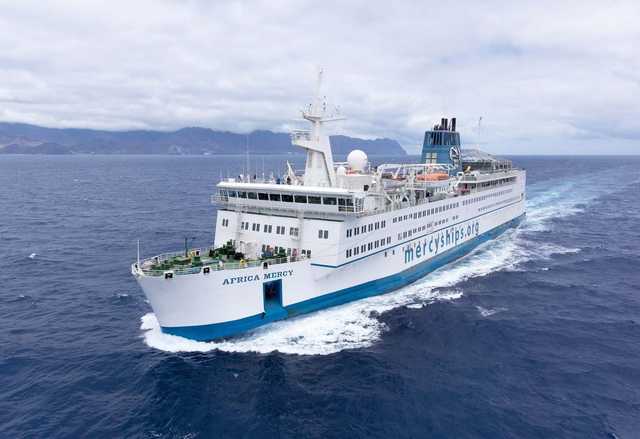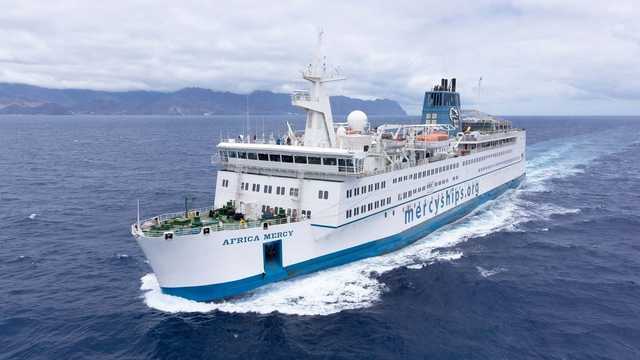
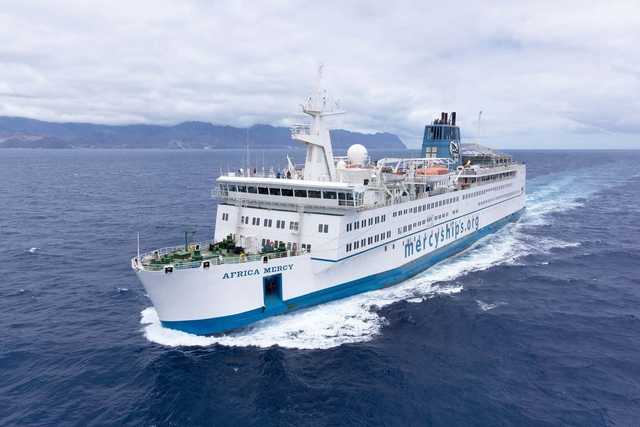
Reading time: 4 min
Date of first publication: 23.11.2022
Since 1978, Mercy Ships, a global humanitarian aid organization, has been providing remote areas with health services and much-needed medical surgeries. Aboard this floating hospital in Africa, a crew of volunteers provides critical surgical procedures.
Two out of three people worldwide lack access to safe and affordable surgical care. Especially in low- and middle-income countries, access to care is limited. This is also the case in many African countries.
Many facial tumors, deformities and disfigurements go untreated. This is where Mercy Ships comes in with their floating hospital Africa Mercy. When hospitalization is too expensive, those in need can receive treatment aboard the ship.
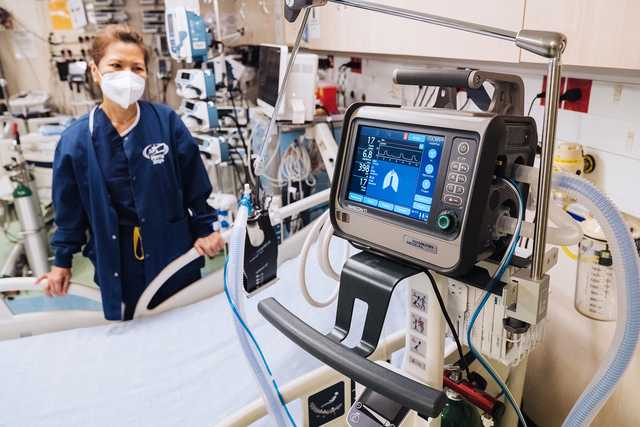
The hospital aboard the Africa Mercy ship occupies the largest area of the ship with around 1,200 square meters. It consists of five operating theaters, the intensive care unit with two beds, and the general ward with a total of 82 beds.
Hamilton Medical provides urgently needed ventilators in the intensive care unit on a non-profit basis. The HAMILTON-T1 units are used specifically during oral and maxillofacial surgery.
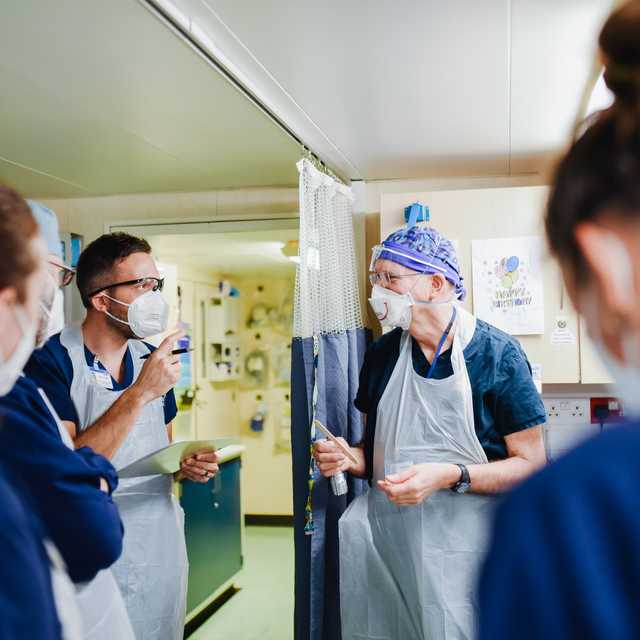
Ryan Toupin is the lead intensive care nurse for oral and maxillofacial surgery aboard the Africa Mercy ship. This is his fourth deployment aboard the hospital ship, which has been on the coast of Senegal since January.
Normally, the ship docks at one location and stays there for about 10 months. The advantage of being stationed in one place is that the power and water supply can be controlled and maintained. As a result, high-quality medical and surgical care can be provided aboard the ship.
"A large percentage of the people here do not have access to safe and affordable medical care. In some cases, we see people with conditions that could be easily treated, but without treatment could lead to death for many people," says Ryan Toupin.
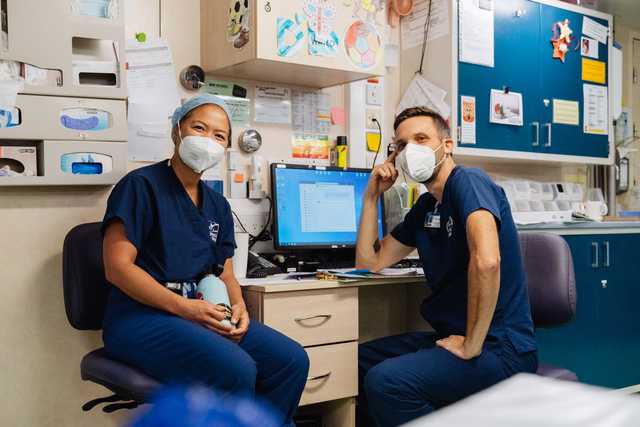
It is always refreshing to experience the great gratitude of the people here. I take that motivation back home to my job every time.
ICU nurse, Mercy Ships
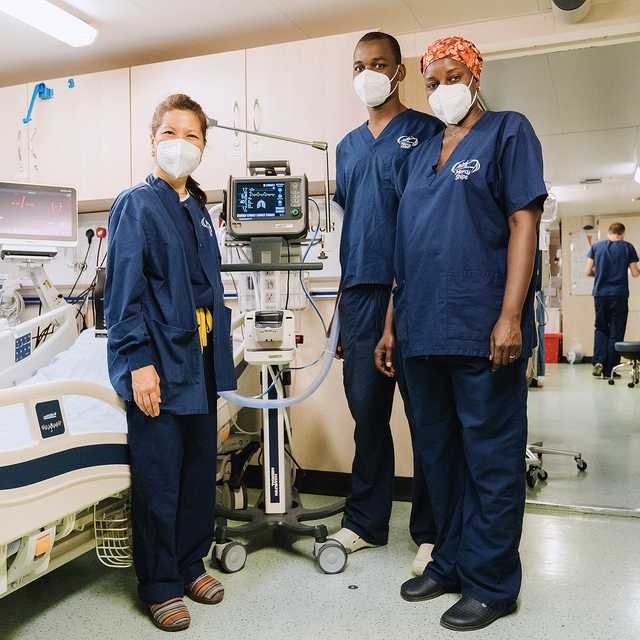
Most patients are in the ICU for monitoring after surgery for only a short period of time (12 to 24 hours). Most patients in the ICU have had previous head or neck surgeries. Sometimes doctors remove very large tumors, which can cause airway swelling. But every so often, there are emergencies that require prolonged ventilation.
"Recently, we had a patient in the ICU who had neck surgery, actually a simple case. However, after the surgery, the anesthetics didn't wear off, so she had to stay intubated in the ICU overnight,” says Ryan Toupin. "That's when it was very convenient to have a mobile ventilator that was easy to use," he continues. “The ease of use also supports the quick training of volunteers who are only on the ship for a short time period.”
